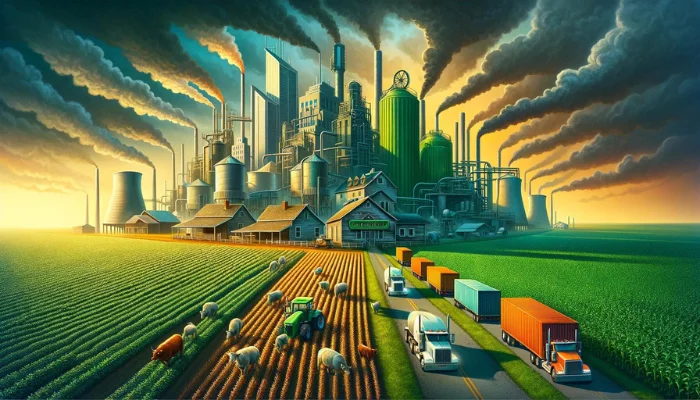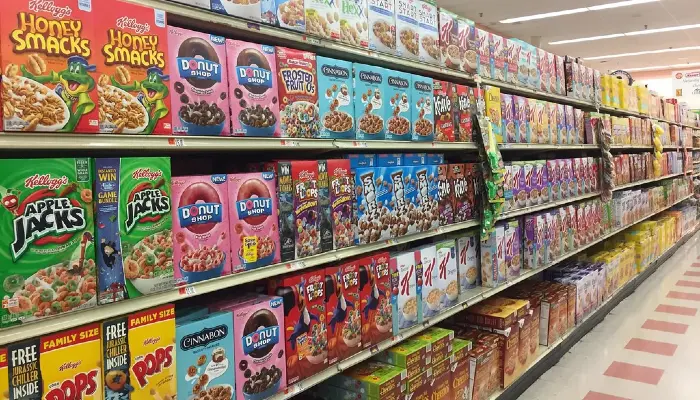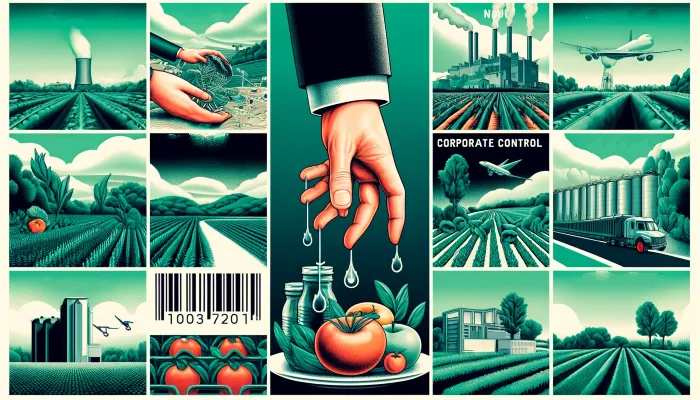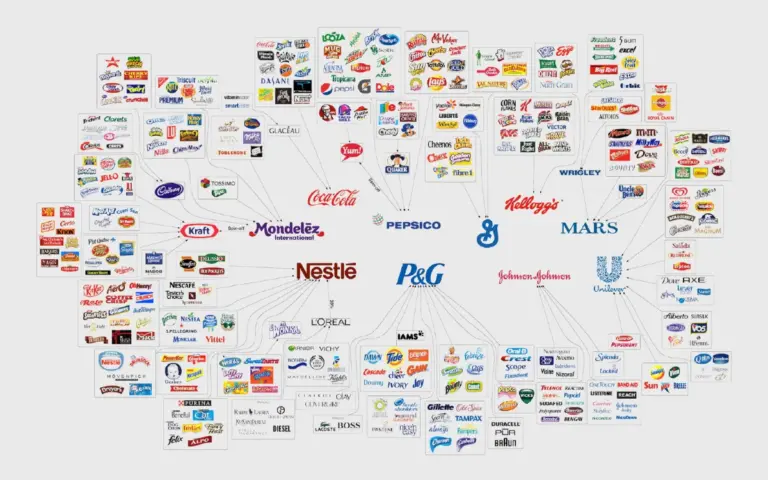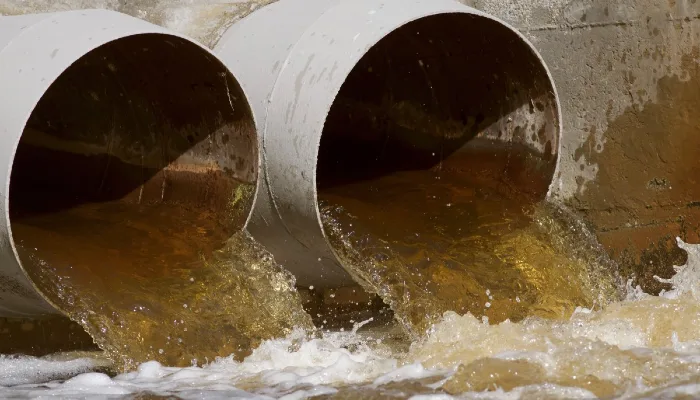As the world grapples with climate change, major food companies are stepping up their sustainability game. But there’s a twist in this green narrative: it’s the farmers who are shouldering the heavy load. From multinational fast-food chains to grocery giants, the race towards net-zero emissions is on. Yet, the spotlight on corporate green initiatives often misses a critical piece of the puzzle—the challenges and pressures faced by the farmers at the heart of our food supply chain.
The Domino Effect on Farmers
When companies like McDonald’s vow to cut down their carbon footprint by 2040, it sends ripples through the entire food industry. This shift towards eco-friendly practices is vital but comes with a hefty price tag for those at the start of the supply chain. In countries like the US and the UK, where supermarket giants like Walmart and Tesco dominate the market, small-scale farmers find themselves at a crossroads. Adapting to the stringent sustainability standards set by these corporations can be daunting, with high costs and complex technologies often out of reach.
“The proposed measures are often impractical for smaller farms, expensive, or lack buy-in from farmers,” highlights the struggle to balance environmental goals with practical farming operations. This situation is exacerbated by the murky waters of carbon offset schemes, which, while aiming to compensate for emissions, have come under fire for their effectiveness and transparency.
A Tightrope Walk for Small Farms
The pressure to conform to these new standards can lead to significant financial strain on farmers. Implementing changes such as digesters for manure management or altering grazing practices requires substantial investment, a daunting prospect for smaller operations. The risk? Being edged out of the market. “Research by the British bank Barclays indicates that, in 2021, UK retailers cancelled contracts worth over £7 billion with suppliers as a result of failure to meet sustainability standards.”
Yet, amidst these challenges, there’s potential for positive change. Techniques like selective breeding for cattle, which can significantly reduce feed consumption and greenhouse gas emissions, demonstrate the innovative ways farmers can contribute to sustainability. However, without the backing and financial support from the larger players in the supply chain, such practices struggle to gain traction.
Other Ways Farmers Are Paying the Price While Large Corporations Praise Themselves
The Cost of Certification and Compliance
Farmers are often required to obtain certifications to prove their practices meet sustainability standards set by large corporations or certification bodies. The cost of obtaining and maintaining such certifications can be prohibitive for small farmers. For example, organic certification costs can range from a few hundred to several thousand dollars, not including the changes in practices and potential yield reductions.
The Price Premium Problem
While sustainable products often command a higher price in the market, the premium doesn’t always trickle down to the farmers. For instance, a study published by the Fair Trade Advocacy Office highlighted that despite the premium price of fair trade products, only a fraction of this premium actually reaches the producers.
Impact of Climate Change Mitigation on Land Use
To reduce their carbon footprint, some corporations are investing in land for reforestation or biofuel crops, which can drive up land prices and make it harder for small farmers to expand or even maintain their land.
A report by the Land Matrix highlighted an increase in land acquisitions for biofuel production, which competes with food production and can lead to farmer displacement.
More To Discover
Dependency on Single Buyers
Small-scale farmers who enter into contracts with large companies for sustainability programs often find themselves dependent on a single buyer, which can put them at a disadvantage in negotiating prices and terms. A 2019 report by the Food and Agriculture Organization (FAO) discussed how this dependency can limit farmers’ market options and potentially lead to unfair pricing.
Technology and Infrastructure Investments
Large companies often encourage or require farmers to adopt new technologies or infrastructure to reduce emissions, such as methane digesters for dairy farms. The initial investment for these technologies is high, and while they can offer long-term savings and environmental benefits, the upfront cost is a significant barrier for many farmers. For example, the installation of a methane digester can cost upwards of $1 million, a prohibitive amount for small to medium-sized farm operations.
The Shift in Consumer Expectations
As consumers become more environmentally conscious, they demand more sustainable products, which can put pressure on farmers to adapt quickly to new farming practices without adequate support. A survey by the International Food Information Council in 2020 found that sustainability is becoming increasingly important to consumers in their food purchasing decisions, highlighting the pressure on farmers to meet these expectations.
The Path Forward: Collaboration and Support
For a truly sustainable transformation in the food industry, the voices and expertise of farmers must be at the table. Recognizing the critical role they play in our food system means involving them in the conversation about how to achieve environmental goals in practical, attainable ways. The ambition of farming organizations in the UK and Canada to reach net-zero emissions is a testament to the sector’s commitment to change. However, turning these aspirations into reality requires more than just setting targets; it demands tangible support, clear standards, and incentives that encourage and reward sustainable farming practices.
In the end, the journey towards a greener food system should not leave farmers behind. As the backbone of our food supply, they need the tools, resources, and support to navigate the challenges of sustainability. Only through a collaborative effort can we ensure that the push for a cleaner, more sustainable food industry is both inclusive and equitable, with farmers recognized not as mere participants but as essential partners in shaping a greener future.








